Thinking
Interview with Hui Zhang, Vice President, NIO Europe
Interview with Hui Zhang, Vice President, NIO Europe

Hui Zhang, Vice President, NIO
In general, the entire crisis was managed very effectively in China, so the market was able to operate in a more regular manner after a short break.
For NIO, the crisis caused the same challenges everyone had to face, but our way of dealing with it was different. We immediately focused on two aspects that shape our business model: the mobile internet and our online-to-offline sales channels. That helped us significantly to approach our users very quickly after the outbreak of Covid-19 and to bring them back to our point of sales: the NIO Houses and NIO Spaces.
So we were able to gain a substantial brand awareness and sales push. And in general, one can say that the agility of our operations was key for our success. And this is reflected in the sales records we set month after month beginning in April 2020.
First, we want to consolidate our market position in China. Second, we want to establish NIO as a brand and our NIO products globally. Third, we have the goal of securing our share of the global premium car market. Fourth, we want to expand our technological leadership in the field of Autonomous Driving. And fifth, we want to be the first user enterprise that redefines the user experience by offering a special ecosystem consisting of worry-free services, highly technologized and digitized, smart and premium electric cars, and manifold ways for our users to interact with and further develop the NIO products and really become vivid members of the NIO brand.
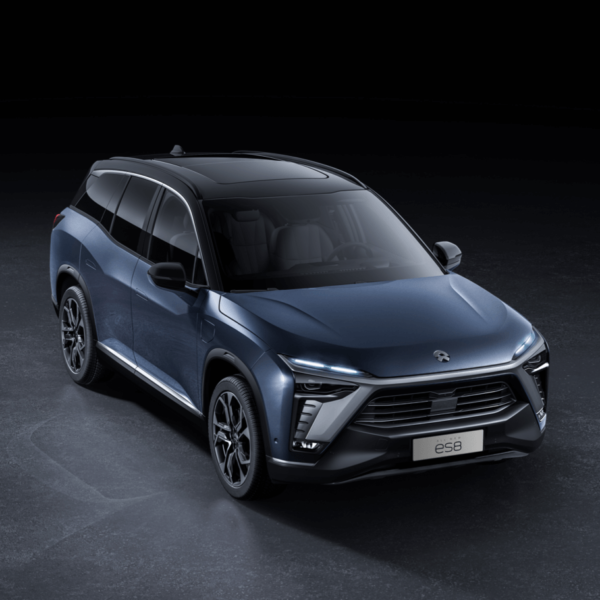
As I already mentioned, we are seeing ourselves as a user enterprise, and our mission is to shape a joyful lifestyle. We all know that the concept of joy is extremely important, since the current experiences of ownership can be really the opposite of joyful. However, for us this vision is much bigger than just selling cool cars – for us it is the way we speak to and interact with our community, the service and the platforms we provide to our users, and the fact that we really listen to the individual needs and wishes of our users to optimize our products and the whole user experience to enable every user to enjoy her or his individual concept of joy when interacting with our brand and our products. We want our users to become a part of the brand and enjoy every single facet of it. To say it clearly, we want to become the enterprise that generates the highest user satisfaction globally.
For us, the combination of being a user enterprise, having one of the most loyal user communities and having created the NIO App which is unique in its design and purpose is our biggest USP in comparison to our competitors. When looking at the 2020 YTD China Auto Net Promoter Score, NIO was highest ranked with 54% before Tesla, Toyota and all the other traditional OEMs. So, we can be proud of having created the highest user satisfaction and at the same time the highest user connection to our brand. Of course, we will build on this great success and make sure that our user satisfaction will grow even better and bigger.
In addition to that, we will continue to invest in the field of smart electric vehicles. The further development of battery technology and the drivetrain as well as all the relevant technologies linked to autonomous driving will stay as the focus of our investment strategy.
And of course, we will continue with our business model linked to the mobile internet and the already mentioned online-to-offline sales model and make use of these approaches to significantly grow our user connection – which we have already achieved very well in China.
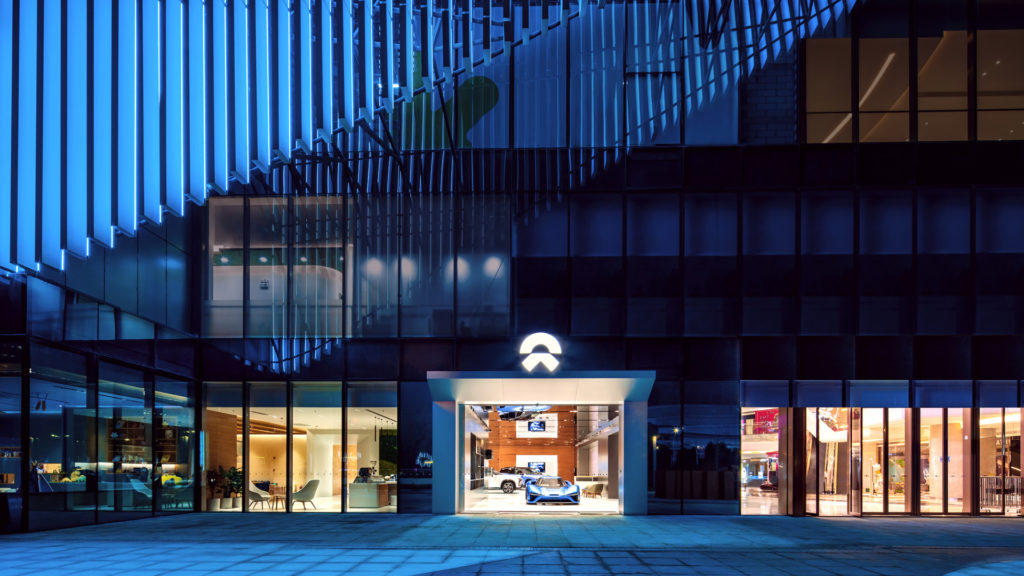
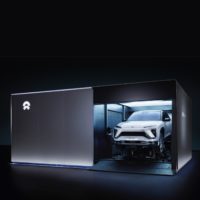
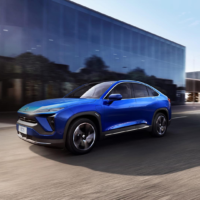
After the outbreak of Covid-19, we saw a clear shift in terms of consumer behavior in China: consumers tended more strongly to personal mobility solutions and we saw an increase in private ownership. All that, of course, happened with the purpose of avoiding the risk of infections and increasing the chances of staying as healthy as possible. According to our observation, the market then recovered relatively quickly. This was particularly evident from April onwards, when we were able to set new records in sales every month, a trend that continues to this day.
This can also be seen as proof that the consumer confidence and the buying mood returned to the Chinese markets. And as a final observation I want to mention that our customers in China started to articulate a higher demand for premium products – which can also be read from our sales records because we sell smart EVs in the premium car segment.
The biggest change is the time you win back when new technologies are implemented in cars. Imagine a megacity like Shanghai for instance, where the daily commute to the office is about one hour. With future technology in the field of autonomous driving, commuting time will have an entirely different meaning because it is then not wasting time any more but actually adding value to your daily commute. The future car experience will also be more personal because you can then decide how to spend the time while being a passenger in your own car – work, enjoy a movie, a book or music or chat with your loved ones via video call. It is totally up to the induvial and, again, becomes a more joyful experience.
In addition to that, we believe that cars will become more like a smart and mobile device. Technologies will not only make us better, more relaxed and safer drivers, but also will bridge the gap between the physical world and the smart phone. Why would you still look at a six-inch screen when the entire interior space could become a projection surface?
We also believe that the way we interact with the car will change. At NIO, we Introduced our voice assistant NOMI, an in-car AI and digital companion that is constantly learning. And I think this is justthea beginning.
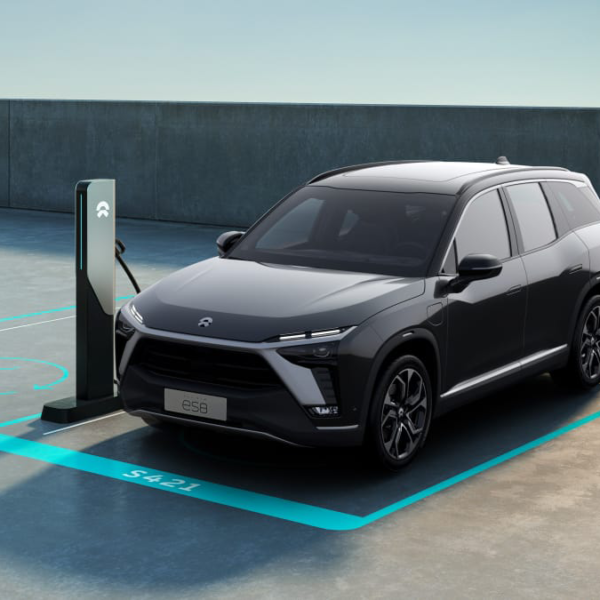
The importance of flat hierarchies grew significantly during the last months. Motivating your team members and guiding them to enable themselves to overcome these turbulent times as a reliable and strong team is of utmost importance – especially as a global startup like NIO.
However, as a leader it also became very important to identify and use the right tone to approach the users and customers of your business. For me, that means that leaders should be affable and approachable for everybody and not only for the own employees.
And especially in the automotive industry today it is essential to be open-minded. I am speaking of all areas of our industry, be it the supply chain business, manufacturing, usage of renewable energies, or just the right partner to boost your business. My recommendation and my maxim is: embrace the change and you will be successful.
I am convinced that individual transportation will become even more important, so the need for more personalizable products will increase even more. At the same time, this could also mean that there might be a decrease in shared mobility – we can see it happen in China already, because more and more people like to avoid public transport.
The electrification of mobility will continue, and its importance will grow bigger and bigger so that it will occupy the streets all over the world within the next decade. The same goes for the field of autonomous driving and smart features in EVs.
And one very important change will be the shift towards more natural, eco-friendly solutions and materials that will be used to produce the cars of the new age of mobility. Societies all over the world have started to put a strong focus on sustainability as a very important part of their life and consumer behavior. So it will become more and more important for EV manufacturers to work on the origin and composition of the materials used in their products to fulfill the needs of their demanding customers and at the same time develop their corporate culture with a focus on sustainability and environmental friendliness.